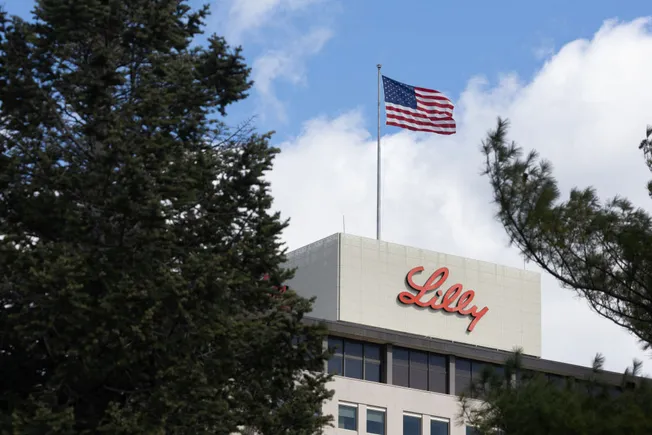Eli Lilly’s collaboration with digital health company Ro on its LillyDirect platform signifies a significant step in the direct-to-consumer strategy adopted by major pharmaceutical companies. Ro, established in 2017, specializes in online prescriptions for various health concerns such as obesity, sexual health, and hair loss, aligning with the business model of digital health firms like Hims & Hers.
Through this partnership, Ro has integrated with LillyDirect, which is Eli Lilly’s direct-to-consumer platform for diabetes, migraine, and obesity. This integration enables customers to access Lilly’s popular weight loss medication Zepound in a new formulation. In a move to make Zepbound more accessible, Lilly introduced single-dose vials at a discounted rate, making it more affordable for patients. Ro now offers these single-dose vials, injectable pens, as well as Novo Nordisk’s Ozempic and Wegovy semaglutide pens.
The collaboration between Lilly and Ro comes amidst a competitive landscape where both companies are vying for market share while also combating compounded versions of GLP-1 medications from pharmacies. Compounded medications are permitted under FDA regulations when the FDA-approved versions are in short supply. Currently, the FDA is reviewing the shortage of GLP-1 medications, which has allowed compounded versions to remain in the market.
Ro’s commitment to maintaining independent clinical decision-making in selling compounded semaglutide aligns with Lilly’s objectives. The FDA’s upcoming review of compounded GLP-1 shortages could impact the availability of these medications. Despite the complexities surrounding compounded medications, Ro has positioned itself as a provider of affordable options for patients seeking GLP-1 treatments.
As Lilly expands its market reach with Zepbound, questions have been raised about the legality of pharma companies selling prescriptions directly to patients through online platforms. Senators have scrutinized DTC platforms like LillyDirect and PfizerforAll for potential violations of anti-kickback laws. However, Lilly and Pfizer have emphasized that telehealth providers are not incentivized to prescribe specific medications.
Looking ahead, the focus on chronic disease management, particularly obesity, could drive further growth in the digital health sector. With the incoming administration’s commitment to reducing chronic disease rates, digital health companies offering obesity solutions, including Ro, are well-positioned to benefit. The collaboration between pharmaceutical giants like Eli Lilly and digital health firms like Ro reflects the evolving landscape of healthcare delivery and patient access to medications. Eli Lilly’s executive, Mike Reitano, has been vocal about the high cost of Ozempic in the United States compared to other countries. In a recent public appearance, Reitano emphasized the disparity in drug prices between the U.S. and other nations, highlighting the financial burden it places on American patients.
Reitano expressed optimism about the new administration’s focus on addressing the issue of high drug prices. Despite political divides, both the current and incoming administrations recognize the significant impact of chronic diseases on the population and acknowledge that drug prices need to be more affordable for patients.
The cost of medications like Ozempic, which is used to treat diabetes, has been a point of contention for many years. American patients often pay significantly more for the same drugs than patients in other countries, leading to financial strain and difficulty accessing essential medications.
As discussions around healthcare reform continue, the issue of high drug prices remains a top priority for policymakers and industry leaders. Reitano’s advocacy for fair and affordable pricing reflects a broader push for transparency and equity in the pharmaceutical industry.
In order to address the challenges of high drug prices, collaboration between government, pharmaceutical companies, and healthcare providers is essential. By working together to find sustainable solutions, we can ensure that patients have access to the medications they need without facing financial hardship.
The conversation around drug pricing is complex, but it is clear that action is needed to make essential medications more affordable for all Americans. As we look to the future, initiatives that promote transparency, competition, and value-based pricing will be crucial in creating a more equitable healthcare system.
By addressing the high cost of medications like Ozempic, we can improve the health and well-being of patients across the country. It is time for meaningful change that prioritizes affordability and accessibility in healthcare.


